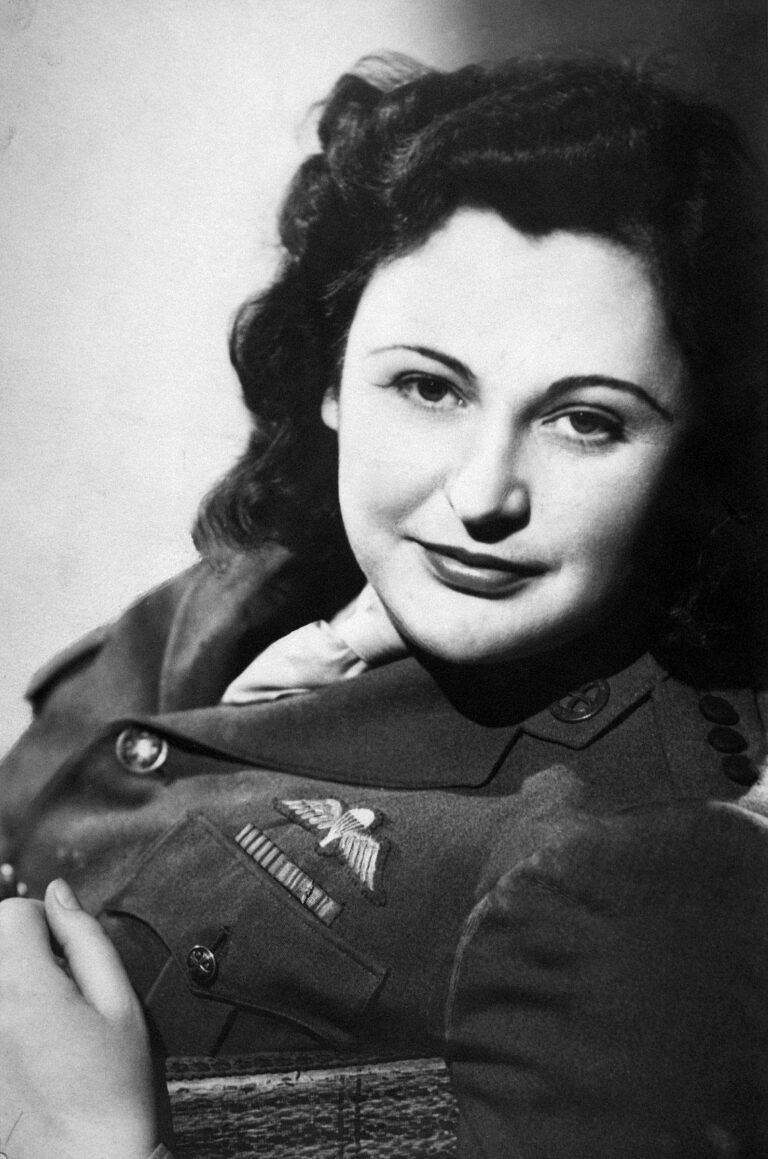The White Mouse: How Nancy Wake Became the Heroine of the French Resistance
In the annals of World War II, tales of bravery and defiance often spotlight soldiers and generals, but one woman stands out as a beacon of courage against tyranny. Nancy Wake, an Australian expatriate turned French Resistance fighter, earned the code name ŌĆ£The White MouseŌĆØ for her elusive nature and cunning escape artistry. As the war unfolded, she became a symbol of resilience, orchestrating daring operations that challenged Nazi occupation in France. This article delves into Wake’s remarkable life, exploring how her audacious spirit and unyielding commitment to freedom transformed her into a legendary figure of resistance. Through her actions, Wake not only defied the Nazis but also inspired countless others to stand against oppression.
The Early Life of Nancy Wake and Her Path to Resistance
Nancy Wake was born in Wellington, New Zealand, in 1912, but her early years were shaped by her familyŌĆÖs move to Australia, where her father worked as a farmer. Growing up in a modest home, she displayed a rebellious spirit from a young age. By the time she reached her teenage years, she had developed a passion for adventure and a disdain for authority, traits that would later define her life as a resistance fighter. After finishing school, Wake took up various jobs, including a stint as a nurse, which exposed her to the impoverished conditions of many Australians and fueled her desire to fight injustice.
In 1939, with war looming in Europe, Nancy moved to England, where her life took a dramatic turn. She embraced a glamorous lifestyle as a reporter and worked as a freelance journalist, covering various stories across Europe. However, the rise of Nazism deeply troubled her, awakening a fierce determination to resist tyranny. She became involved with organizations supporting the war effort, including the feminist movements advocating for women’s roles in society. Her experiences solidified her resolve to become part of the resistance, leading her to France, where her transformation into the legendary ‘White Mouse’ would soon begin.
Key Contributions of Wake to the French Resistance Effort
Nancy Wake’s remarkable contributions to the French Resistance were not only instrumental in undermining Nazi operations but also showcased her courageous spirit and indomitable will. As one of the key figures in the resistance movement, she operated as a highly effective courier and spy, transporting vital intelligence and messages between various underground cells. Her exceptional skills in evasion allowed her to navigate the perilous landscape of occupied France, often escaping arrest by mere moments. Wake’s ability to forge connections with other resistance fighters and her unwavering dedication played a crucial role in mobilizing support against the German occupiers.
Moreover, Wake was a master organizer, overseeing numerous operations that facilitated the escape of Allied airmen and other individuals from Nazi clutches. She played an instrumental role in the creation of escape routes, often working with local families to secure safe houses. Her commitment to the cause was evident as she risked her life multiple times, demonstrating incredible resourcefulness in strategically planning attacks on German supply lines. The impact of her efforts is reflected in the thousands of lives she touched and the significant disruption she caused to Nazi operations, marking her as a legendary figure in the annals of the French Resistance.
Legacy of the White Mouse: Impact on Modern Resistance Movements
Nancy Wake, known as the “White Mouse,” left an indelible mark on resistance movements worldwide, embodying the spirit of defiance and resilience in the fight against oppression. Her daring exploits during World War II, including smuggling escaped prisoners and executing audacious sabotage missions, continue to serve as a powerful source of inspiration for contemporary activists. As the modern struggle for justice evolves, Wake’s legacy is instrumental in shaping the methodologies and philosophies of current resistance efforts, reminding us that courage can outperform any adversary, regardless of their might.
Today, the lessons drawn from Wake’s life resonate across various movements, reinforcing values such as grassroots organizing, community solidarity, and nonviolent resistance. Numerous organizations have adopted her tactics, highlighting her principles in their campaigns. A brief overview of some notable modern movements influenced by her legacy includes:
| Movement | Key Influence | Impact |
|---|---|---|
| Arab Spring | Grassroots Mobilization | Vast protests against authoritarian regimes |
| Black Lives Matter | Community Solidarity | A global response to racial injustice |
| Women’s March | Defiance and Solidarity | Mobilization for women’s rights and equality |
Lessons from Nancy Wake’s Tenacity for Today’s Activists
Nancy Wake’s unwavering dedication serves as a powerful reminder for today’s activists, encouraging them to confront challenges with courage and resilience. Her ability to adapt to rapidly changing circumstances exemplifies the importance of being versatile in the face of adversity. As the world grapples with complex social issues, activists can draw inspiration from her strategic thinking and resourcefulness, harnessing these traits to effectively challenge the status quo. The lessons offered by her life demonstrate that success is often contingent upon one’s willingness to innovate and collaborate with others in the movement.
Moreover, WakeŌĆÖs relentless pursuit of justice highlights the significance of personal accountability and moral courage. For modern activists, this translates into a commitment to staying informed and mobilizing others. The following attributes are particularly relevant for todayŌĆÖs social change leaders:
- Unyielding Persistence: Staying dedicated to the cause regardless of setbacks.
- Courageous Leadership: Stepping up even when faced with personal risk.
- Community Building: Engaging others to amplify collective voices.
| Quality | Importance |
|---|---|
| Adaptability | Essential for responding to evolving circumstances. |
| Collaboration | Strengthens movements through shared resources and ideas. |
| Moral Clarity | Guides decision-making and defines the mission. |
Closing Remarks
As we reflect on Nancy Wake’s extraordinary life and her indomitable spirit as “The White Mouse,” it becomes clear that her contributions to the French Resistance extend far beyond mere bravery. WakeŌĆÖs story is a powerful reminder of the resilience of the human spirit in the face of tyranny. Her audacious missions, tireless commitment to freedom, and unabashed defiance against oppression serve as an enduring legacy.
In drawing inspiration from her remarkable journey, we not only honor WakeŌĆÖs memory but also recognize the countless unsung heroes who fought against injustice during World War II. The lessons learned from her life continue to resonate today, reminding us of the vital importance of courage and conviction in the ongoing struggle for liberty and human rights. In an era where those values are increasingly tested, Nancy WakeŌĆÖs legacy will undoubtedly inspire future generations to stand up against oppression, reminding us all that true heroism knows no bounds.




